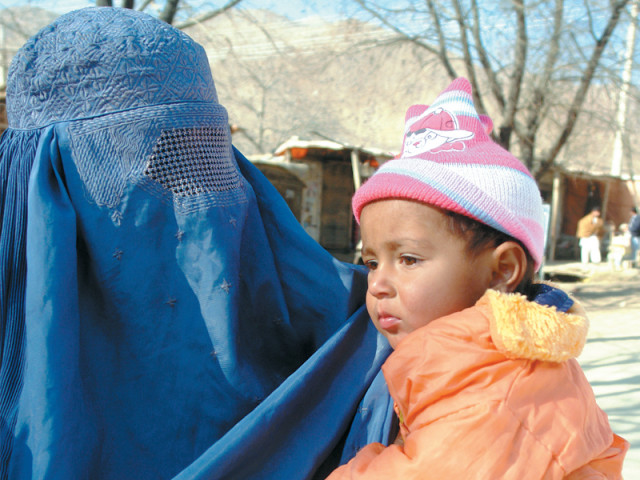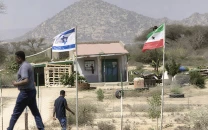Afghanistan no longer worst place for mothers: Report
'Better healthcare, more girls attending school have knocked Afghanistan as worst place on earth to be a mother.'

"More mothers are surviving and fewer children are dying and this is something we need to be celebrating," said Rachel Maranto, Advocacy and Mobilisation senior Manager at Save the Children in Kabul.
Afghanistan switched places with Niger in western Africa in Save the Children's 'Mothers' Index', which fell back to bottom place, a spot Afghanistan occupied for the past two years.
This was partly achieved by the number of births attended by trained professionals in Afghanistan rising from 14 percent to 24 percent between 2003 and 2008, and girls in formal education, which has gone from zero in 2001 to 2.5 million today.
Afghan women have won back hard-fought rights in education, voting and work since the five-year austere rule of the Taliban was toppled by U.S.-backed Afghan forces in 2001.
But their plight remains severe and Maranto warned that such gains are "fragile".
Lot more to do
Foreign aid accounts for more than 80 percent of Afghanistan's annual state budget of roughly $5 billion, and that is set to dramatically fall as foreign combat troops prepare to leave by the end of 2014.
Rick Manning, medical director at Cure International's hospital in Kabul, said there were "encouraging signs" that life for mothers and children was improving, but warned: "It's more complicated than just spending money. It's getting the right people here to make sure the money is used correctly."
In a neonatal intensive care unit run by the non-profit Cure -- one of only five in the country -- Manning surveyed the row of incubators where tiny babies born prematurely were sleeping.
"About every infant who comes in here would have died if they were not admitted here. So a lot more of these care units need to be made, staffed, housed. A lot more needs to be done."
During the rule of the Taliban, women were denied access to general hospitals from 1998 and not allowed out of their homes without a male relative or their husband, meaning their health deteriorated and the child mortality rate shot up.
For Halima, whose 18-month-old son Hamid is recovering from a free of charge cleft lip operation at Cure, one of almost 3,000 it has performed since opening in 2005, life has definitely improved.
"This simply would have not been possible during the time of the Taliban," said the illiterate mother from a village in central Bamiyan province.
Maranto said Afghanistan is haunted by the huge divide between urban centers, where women have more access to healthcare and education, and the rural areas, where life carries on much as it did during the time of the Taliban.
As a result, Afghanistan suffers from widespread malnutrition, which leads to 60 percent of Afghan children being affected by stunting, and 275 children die every day in the country of 30 million, Save the Children said in its report.
"There are many women and many mothers who may never be able to see a doctor or a nurse or any kind of trained health worker in their lifetime," said Maranto.



















COMMENTS
Comments are moderated and generally will be posted if they are on-topic and not abusive.
For more information, please see our Comments FAQ